Julie Goell, a comedian, musician, puppeteer, mime and longtime clown on the international stage, died early Monday morning at her home on Peaks Island. In addition to her work on street corners and stages, Goell, 65, was a teacher who pushed her students to take risks and embodied those lessons by reinventing herself as an artist even as she lost the ability to walk and talk.
Her husband, Avner Eisenberg, announced her death on his Facebook page.
“We are all heartbroken at this great loss,” he wrote. “At least she is not suffering any longer.”
Goell stopped performing in 2010 after losing her balance and “feeling out of whack” on stage. She suffered from a neurodegenerative condition, which doctors diagnosed as multiple system atrophy. She lived on Peaks Island with her husband and community of friends who cared for her.
This past spring, Goell published a book, “Life in a Clown House: A Manual and a Memoir.” It’s a how-to guide on clowning and Commedia dell’Arte, one of Goell’s specialties, and a collection of stories from her life that explored, in poetry and prose, Goell’s most personal feelings about her failing health. She dictated the book to island friends who assembled the stories and oversaw its publication.
“I’m very sad, and I feel like a great light has been taken from the world,” said longtime island friend Nancy Hoffman. “Julie was an amazing creator and entertainer with great humanity. And she shared that with thousands and thousands of people.”
DRAWN TO CLOWNING AS A CHILD
Born in Brooklyn on April 19, 1951, Goell spent much of her youth in Rome, Italy. She fell in love with European miming and clowning, and she committed herself to mastering those art forms. She earned a degree in theater from Emerson College in Boston and studied the stringed bass and voice at the University of Southern Maine. She completed teacher training for physical theater in Rome at L’Istituto per lo Studio Dello Spettacolo.
In Rome, Goell performed in music and theater, film and television. She toured as a clown, taught physical comedy, spent a year on the road with the Swiss circus “Schaubude” and later toured her live jazz show, “Impromptu,” in Switzerland.
In the United States, she acted on Broadway, directed several New York productions and directed Commedia Dell’Arte for the Spoleto Festival and Disney World’s Epcot Center in Orlando, Florida, where she met Eisenberg, who enticed her to Maine. They lived together for 30 years on Peaks Island and raised a son, Zev Eisenberg, who came home from Boston to be with his mother when she died.
Avner Eisenberg said he learned from his wife’s resilience, as an artist and as a human being.
“First she lost the ability to run. Then she lost the ability to dance. And then she lost the ability to walk, and eventually she could no longer speak,” he said Monday afternoon. “And when she could no longer speak, she communicated by pointing to a letter on a board. And at the end, she could no longer point. But we held her hand, and she squeezed when we got to the right one.”
NETWORK OF GOELL CAREGIVERS
Eisenberg praised the dedication of Goell’s team of caregivers, a network of family and friends known as Team Julie who provided around-the-clock care. “It was very important to keep her home, with everybody appreciating her humanity and her humor,” he said.
Goell always said that humor was “intrinsic to my survival,” and she maintained her sense of humor. Last week, Avner heard “gales of laughter” coming from the bedroom and went running to check on the situation. He found Goell and a caregiver laughing so hard, they were crying. Using her letter board, Goell managed to spell – painstakingly, one letter at a time, “Quick, Look behind you.”
“That was vintage Julie,” her husband said. “It must have taken 20 minutes. Her jokes didn’t always slap you in the face.”
Until this year, Goell taught for 25 summers at the Celebration Barn Theater in South Paris, Maine, an international center for physical comedy. Amanda Huotari, executive artistic director of the Barn, first encountered Goell in 1991, when Huotari signed up for an improvisation class taught by Goell and Eisenberg. “That whole week, I got one single laugh,” Huotari said. “But that was enough to keep me going. I came out not knowing how I was going to get there but committed to being on the journey.”
Goell taught students to take risks without knowing the outcome – and she embodied that lesson throughout her creative life, Huotari said. “I think that Julie’s ongoing gift to us all is the way in which she so full-heartedly and generously encouraged her students to improvise, to embrace the unknown and to open themselves up to the joy of discovering. She was a clown. She was a musician. She was poet. She was a puppeteer. No matter what medium she was working in, she was above all an improviser. She was unbound by form.”
One of her island friends, photographer Arthur Fink, remembered Goell as “fearless and totally in control of her body.”
She amazed her friends at her willingness and ability to reinvent herself artistically, Fink said. She mastered many disciplines and never stopped working.
“At first she was a physical comedian,” he said. “Then she got a music degree from USM, and she was more than someone who played an instrument. She had a deep understanding of it, and would go off and perform in Brazil. But before she did that, she felt she wanted to know the language and within a few weeks could carry on a conversation. Her compassion and her desire to connect with other people and other cultures was really what made her so amazing.”
Nicole d’Entremont, a writer friend, helped Goell with her book. She took notes as Goell told stories, struggling to speak but determined to get her thoughts and feelings on record. D’Entremont called the experience “very intense and very honest and truthful, and I am immeasurably grateful for the truth and honesty in the book. As a writer, I respect her wading into that material. I respect her a lot.”
FOLLOWED HER ARTISTIC INSTINCTS
In an interview with the Portland Press Herald in 2013, Goell said she always followed her instincts as an artist and never felt restricted by what others thought she should do.
“Miming took me on the path,” she said. “Miming, then clowning, and clowning took me to music, which took me to singing, and singing took me to playing bass.”
As she lost her ability to walk and, eventually, to talk, she adapted. “The challenge is, how do I reinvent myself and carry on?” she asked.
Eisenberg said a spring memorial will be planned, and he encouraged people to visit the couple’s Peaks Island home from 3 to 8 p.m. Tuesday. He also said that Goell is donating her brain to Harvard University for research.
“Julie joked she always wanted to go to Harvard, and now she finally will,” he said.
Send questions/comments to the editors.


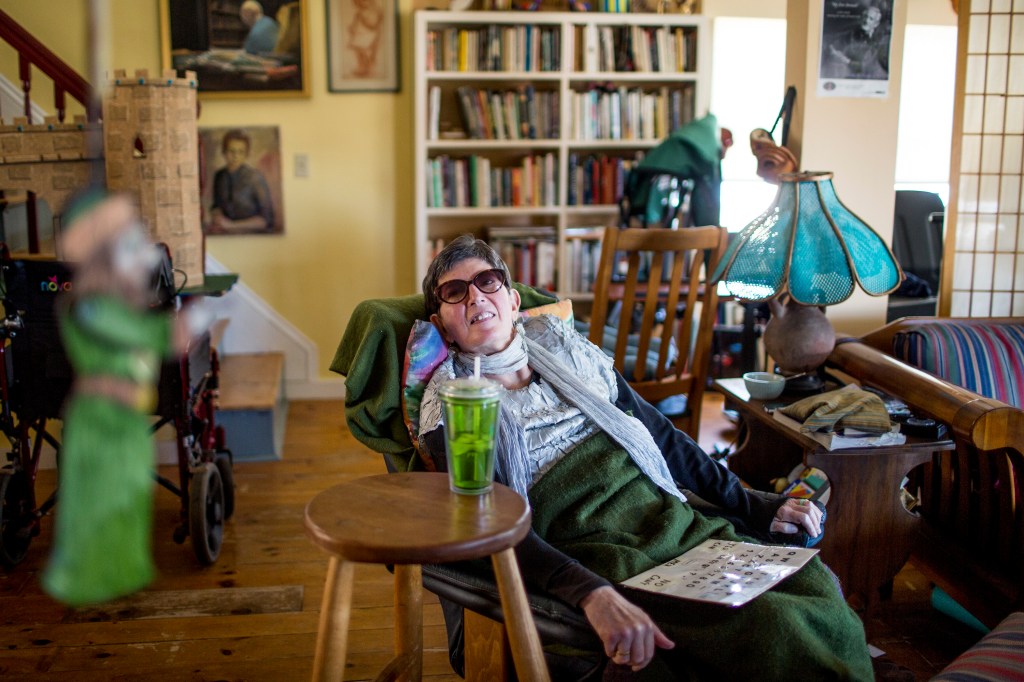
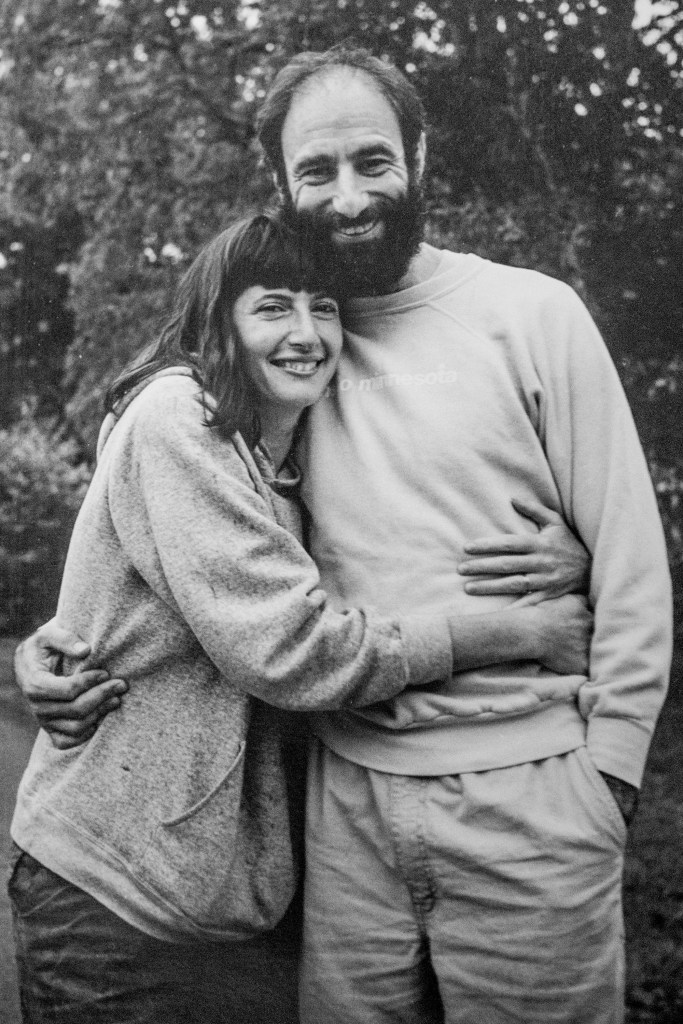
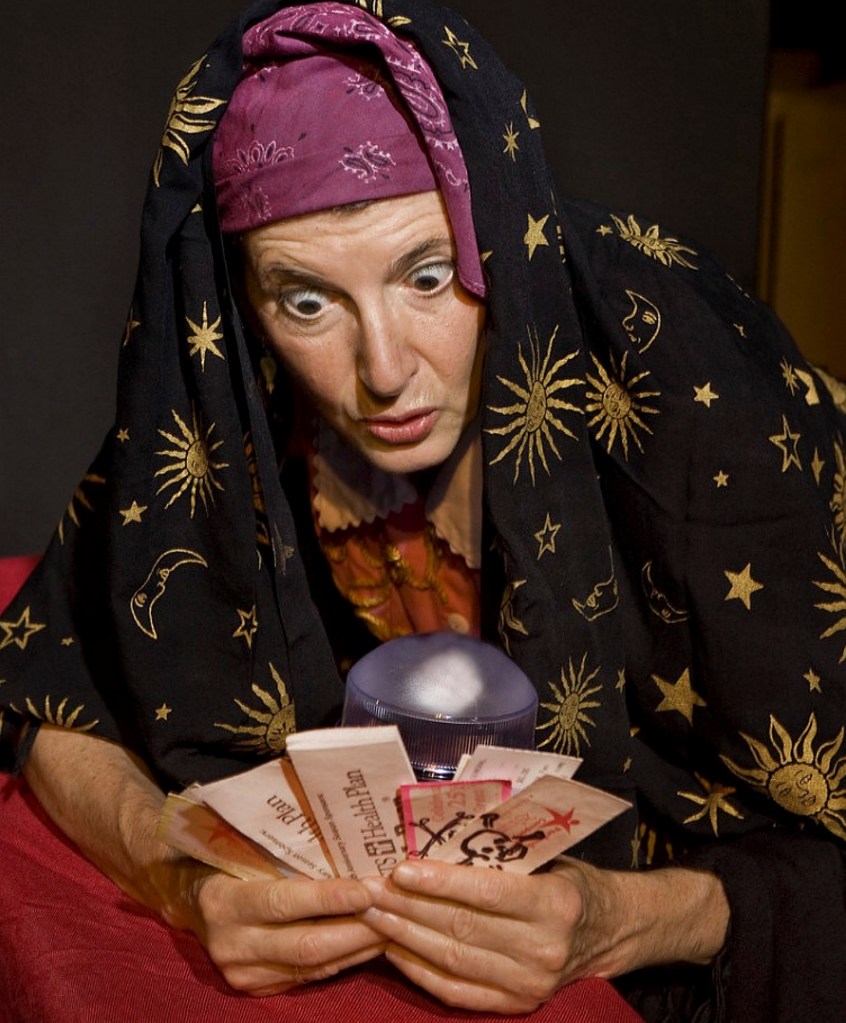
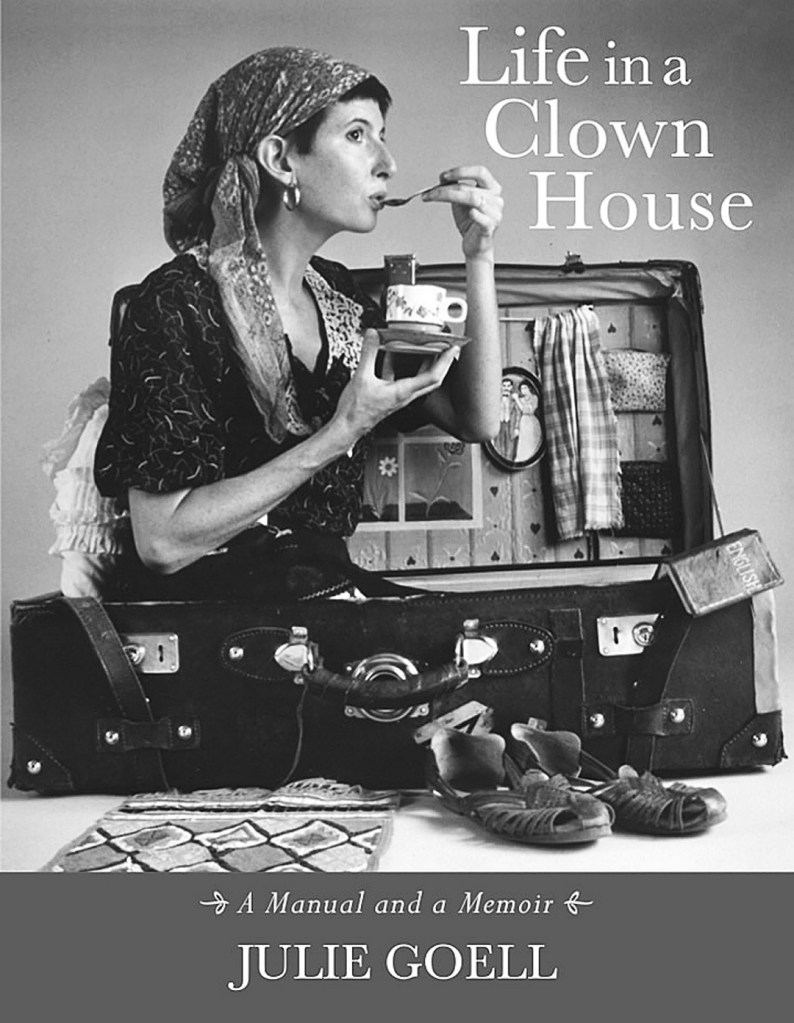
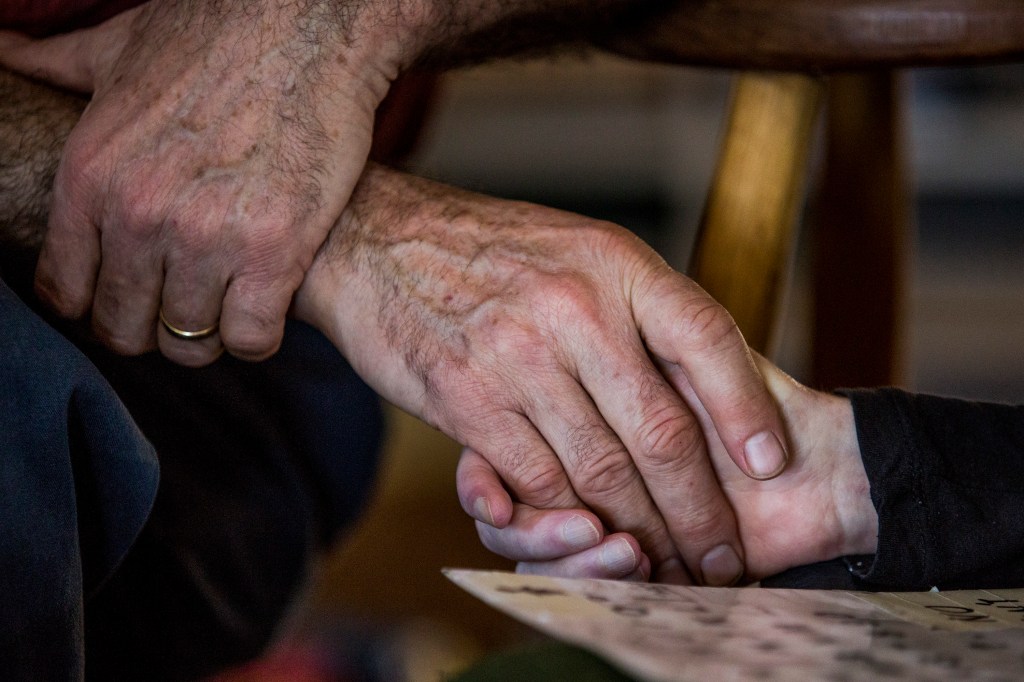
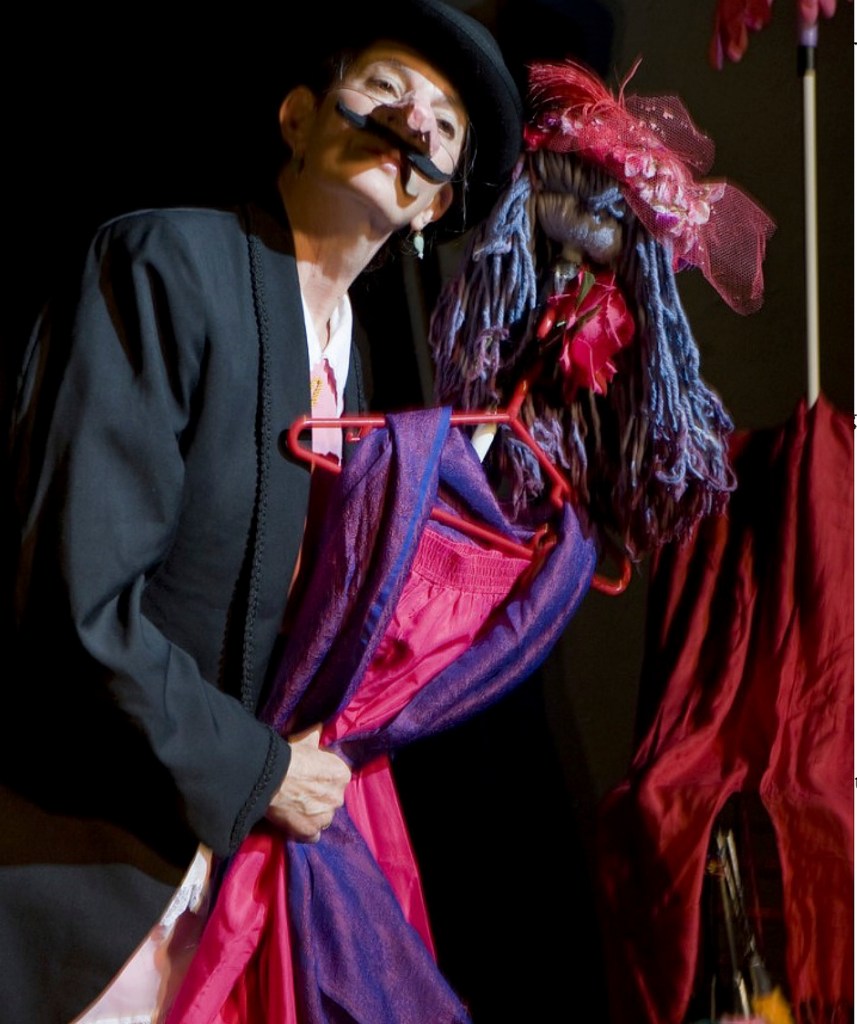
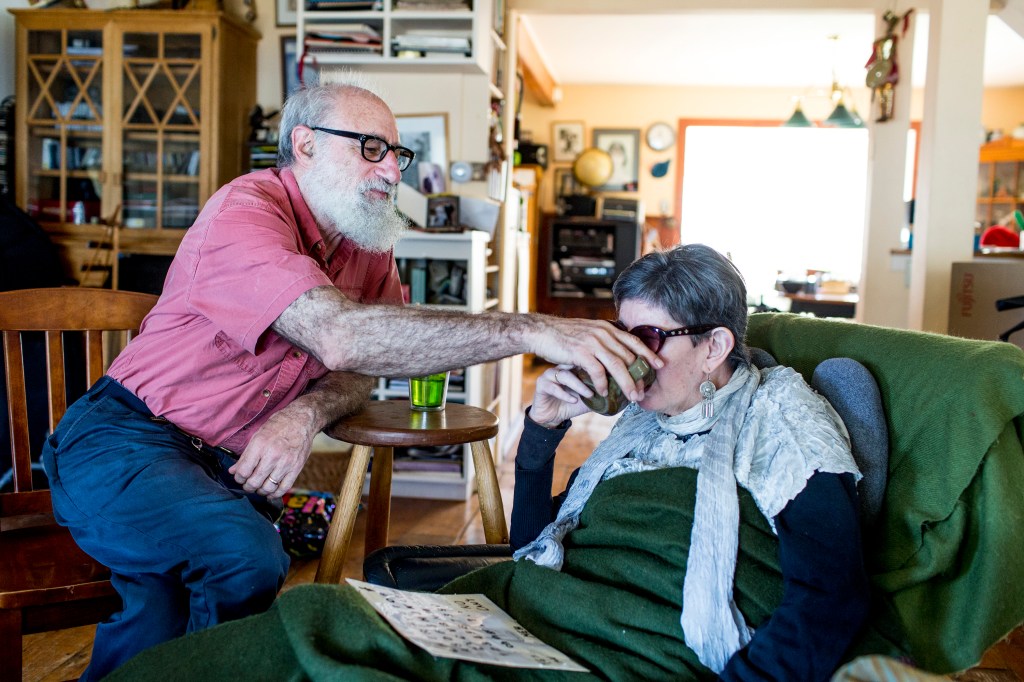
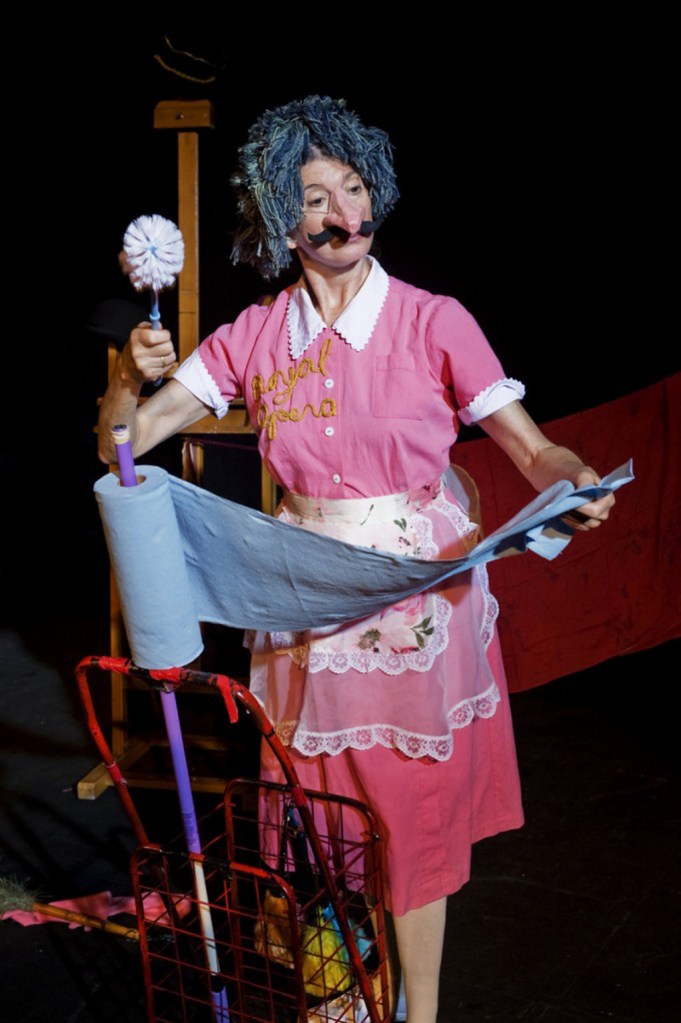
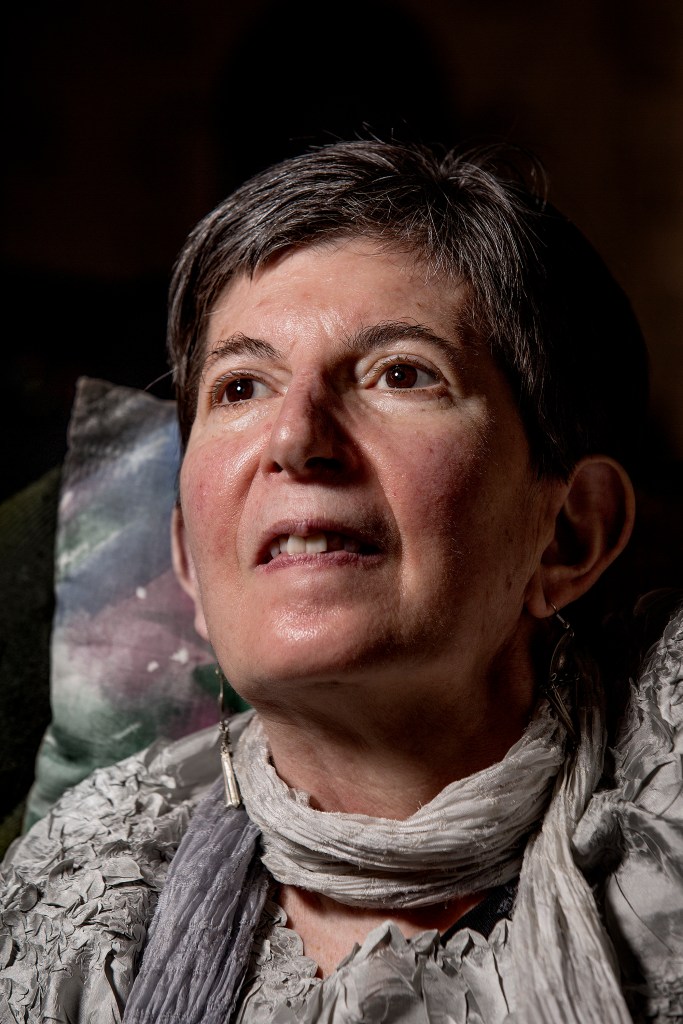

Success. Please wait for the page to reload. If the page does not reload within 5 seconds, please refresh the page.
Enter your email and password to access comments.
Hi, to comment on stories you must . This profile is in addition to your subscription and website login.
Already have a commenting profile? .
Invalid username/password.
Please check your email to confirm and complete your registration.
Only subscribers are eligible to post comments. Please subscribe or login first for digital access. Here’s why.
Use the form below to reset your password. When you've submitted your account email, we will send an email with a reset code.